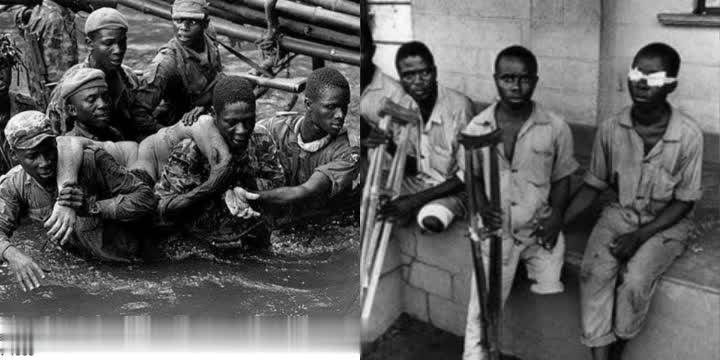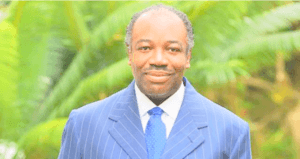
The Biafran War: A Tragic Chapter in Nigerian History
The Biafra War, also known as the Nigerian Civil War, was a devastating conflict that took place in Nigeria from 1967 to 1970. It was a result of political, ethnic, and economic tensions between the Nigerian government and the secessionist state of Biafra, which sought independence from Nigeria.
The Biafra war left a lasting impact on the country, resulting in immense loss of lives, displacement, and economic devastation.
The roots of the conflict can be traced back to Nigeria’s colonial history. Nigeria gained independence from British rule in 1960, but the country was deeply divided along ethnic and religious lines.
The Igbo people, who were the dominant ethnic group in the southeastern region of Nigeria, felt marginalised and discriminated against by the central government, which was largely controlled by the Hausa-Fulani ethnic group from the north.
In 1966, a series of ethnic and religious clashes erupted in Nigeria, leading to the assassination of several political leaders, including the Prime Minister, who was of Hausa-Fulani descent.
This event further deepened the divide between the different ethnic groups in the country. In response to the violence, Lieutenant Colonel Odumegwu Ojukwu, the military governor of the Eastern Region, declared the secession of Biafra on May 30, 1967.
General Yakubu Gowon and his Significant Role in Preventing the Igbos from achieving Biafra’s independence, and how this led to the eruption of the Biafra war.
At the centre of this conflict was General Yakubu Gowon, who served as the Head of State of Nigeria during this tumultuous period. This article aims to shed light on the role Gowon played in the Biafra War, and the impact of his decisions on the outcome of the conflict.
The Nigerian government, under the leadership of General Yakubu Gowon, was determined to maintain the unity of Nigeria and rejected the secession and declared war on Biafra.
1. Ascension to Power
In 1966, Nigeria experienced a series of military coups, leading to political instability and ethnic tensions. Gowon, a young and relatively unknown officer, emerged as the Head of State in a bloodless coup in August 1966.
His appointment was seen as a unifying force, as he was from a minority ethnic group, the Angas, and was expected to bridge the divide between the country’s major ethnic groups.
2. Handling the Biafran Secession
In May 1967, the southeastern region of Nigeria, predominantly inhabited by the Igbo ethnic group, declared independence as the Republic of Biafra.
But Gowon did not like the idea that the Igbos would have to go, because he believed that the secession of Biafra would set a dangerous precedent for other ethnic groups to follow suit, potentially leading to more demands for separation by other ethnic regions of the country.
Also among the Nigerian top Military officers during the 1967-1970 Nigerian Civil War or the Biafra war was General Murtala Ramat Muhammed.
General Murtala Ramat Muhammed played 4 significant roles in the Biafra War, primarily on the Nigerian government side. He served as a high-ranking military officer and later became a key figure in the government. Here are some aspects of his involvement:
1.Military Leadership: Murtala Muhammed held various military positions during the conflict, displaying leadership in the Nigerian military’s efforts against the secessionist state of Biafra.
2.Operation Pincer: He was involved in the strategic planning of military operations, including “Operation Pincer,” which aimed to encircle and isolate Biafra. The operation was a major offensive by the Nigerian military to bring an end to the secessionist movement.
3. Capture of Owerri: Murtala Muhammed played a role in the capture of Owerri, a key city in southeastern Nigeria, which was a significant development in the later stages of the war.
4. Post-War Political Role: After the war, Murtala Muhammed continued to be a prominent figure in Nigerian politics. He eventually became the Head of State of Nigeria after a successful coup in July 1975, although his tenure was short-lived as he was assassinated in February 1976.
General Benjamin Adekunle, popularly known as “The Black Scorpion,” played a significant role during the Biafra War on the Nigerian government side. Here are some key aspects of his involvement:
1.Leadership in the 3rd Marine
Commando Division: Adekunle commanded the 3rd Marine Commando Division, a key military unit during the conflict. His division played a crucial role in various military operations against Biafra.
2. Operation Pincer: Adekunle was involved in the planning and execution of “Operation Pincer,” a major military offensive aimed at encircling and isolating the breakaway state of Biafra. This operation had a significant impact on the later stages of the war.
3. Capture of Owerri: Adekunle’s division played a prominent role in the capture of Owerri as part of the strategy designed by general Murtala Ramat Muhammad. The capture of Owerri was a major development in the conflict .
4. Military Tactics: Known for his aggressive military tactics, Adekunle was both praised for his successes and criticized for the alleged human rights abuses associated with some of the operations conducted by his division.
General Olusegun Obasanjo also played a key role, against the Igbos, on the Nigerian government side during the Biafran War. Here are some key parts of his involvement:
Leadership: Obasanjo held various leadership positions during the conflict. Notably, he served as the commander of the 3rd Marine Commando Division, a key military division involved in the war.
Operations in Southeastern Nigeria: As the commander of the 3rd Marine Commando Division, Obasanjo led his troops in several military operations in southeastern Nigeria, including engagements against Biafra’s forces.
Capture of Owerri: Obasanjo’s division played a crucial role in the capture of Owerri, a strategic city in southeastern Nigeria, in 1968. This was a significant development in the later stages of the war.
Post-War Political Career: After the Biafran War, Obasanjo continued his military and political career in Nigeria. He went on to become Nigeria’s President, serving two non-consecutive terms, first from 1976 to 1979 and later from 1999 to 2007.
However, the Nigerian Civil War, also known as the Biafran War (1967-1970), also had several underlying causes.
5 clear-cut Underlying Causes of the Nigerian Civil War or the Biafran War:
1. Ethnic and Regional Tensions: Nigeria is a diverse country with multiple ethnic groups, and regional disparities were significant. The Igbo ethnic group, primarily residing in the southeastern region, felt marginalized and perceived economic and political imbalances
2. Coup and Counter-Coup: Nigeria experienced political instability with a series of coups and counter-coups in the 1960s. The coup of 1966, in which several political leaders were killed, exacerbated ethnic and regional tensions.
3. Perceived Marginalization of the Igbo: The Igbo people felt marginalized and unfairly treated, both politically and economically. They were concerned about their representation in the government and economic opportunities.
4. Resource Allocation: Control over oil-rich regions became a significant issue. The southeastern region, where the Igbo were the majority, had a significant share of Nigeria’s oil wealth. The control and allocation of these resources heightened the conflict.
5. Declaration of Biafran Independence: In 1967, Lt. Colonel Odumegwu Ojukwu, the leader of the southeastern region, declared the independent Republic of Biafra. The Nigerian government, led by General Yakubu Gowon, opposed this secession, leading to the outbreak of the civil war which lasted for three years.
These were long three years of bloody massacre of the Igbos, a near-achieved plan of ethnic cleansing. However, the war later came to an end with the formal surrender of the secessionist forces in January 1970.
The spirit of the agitation for self-determination, unconditional independence from Nigeria, however, is still much present in average Igbo man and in every household residing in the southeastern Nigeria even as this has given birth to a new movement called the Indigenous People of Biafra (IPOB)







